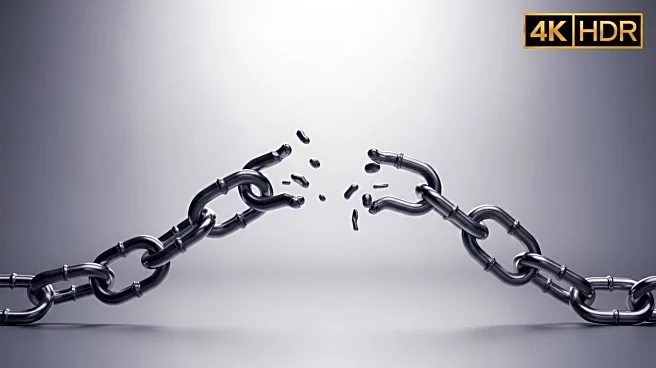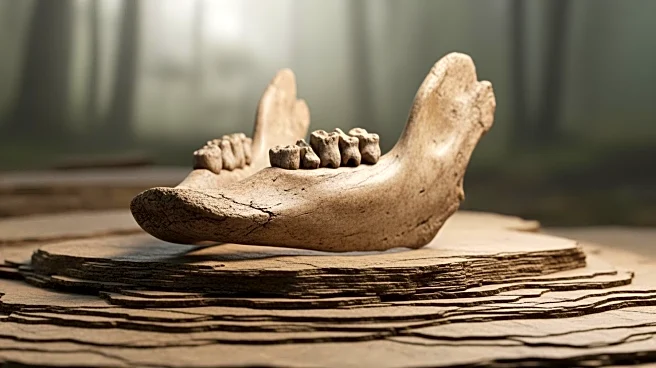What is the story about?
What's Happening?
Tim Allen has publicly shared his emotional response to Erika Kirk's memorial speech, which inspired him to forgive the man responsible for his father's death. Allen's father died in 1964 when a drunk driver collided with his vehicle, a tragedy that occurred when Allen was just 11 years old. Erika Kirk, speaking at a memorial for her husband Charlie Kirk, who was killed at a Turning Point USA event, expressed forgiveness towards Tyler Robinson, the accused killer. Her words, 'I forgive him,' resonated deeply with Allen, prompting him to extend forgiveness to the man who killed his father. Allen shared his feelings on social media, acknowledging his long struggle with forgiveness and expressing peace with his decision.
Why It's Important?
The act of forgiveness, especially in the face of personal tragedy, can have profound implications for individuals and society. Tim Allen's decision to forgive his father's killer, inspired by Erika Kirk's example, highlights the potential for healing and reconciliation. This public declaration may encourage others to consider forgiveness as a path to personal peace and closure. In a broader societal context, such acts can foster dialogue about forgiveness, justice, and the emotional challenges faced by victims of crime. Allen's story underscores the human capacity for empathy and the transformative power of forgiveness, which can influence public attitudes towards crime and punishment.
What's Next?
While Tim Allen's personal journey of forgiveness is a significant emotional milestone, it may also prompt discussions about the role of forgiveness in the justice system and its impact on victims' families. Erika Kirk's public forgiveness of her husband's alleged killer could influence legal proceedings and public perception of the case. As the legal process unfolds, the focus may shift to how forgiveness can coexist with accountability and justice. Stakeholders, including legal experts and victim advocacy groups, may weigh in on the implications of such forgiveness in high-profile cases, potentially shaping future discourse on crime and rehabilitation.
Beyond the Headlines
The cultural and ethical dimensions of forgiveness in the aftermath of violent crime are complex. Tim Allen's and Erika Kirk's actions challenge societal norms about retribution and justice, offering a narrative that prioritizes healing over vengeance. This perspective may inspire broader conversations about restorative justice and its potential to transform lives. The willingness to forgive can be seen as an act of strength and resilience, offering a counter-narrative to the often punitive focus of the criminal justice system. Such stories may encourage a reevaluation of how society supports victims and addresses the root causes of violence.














